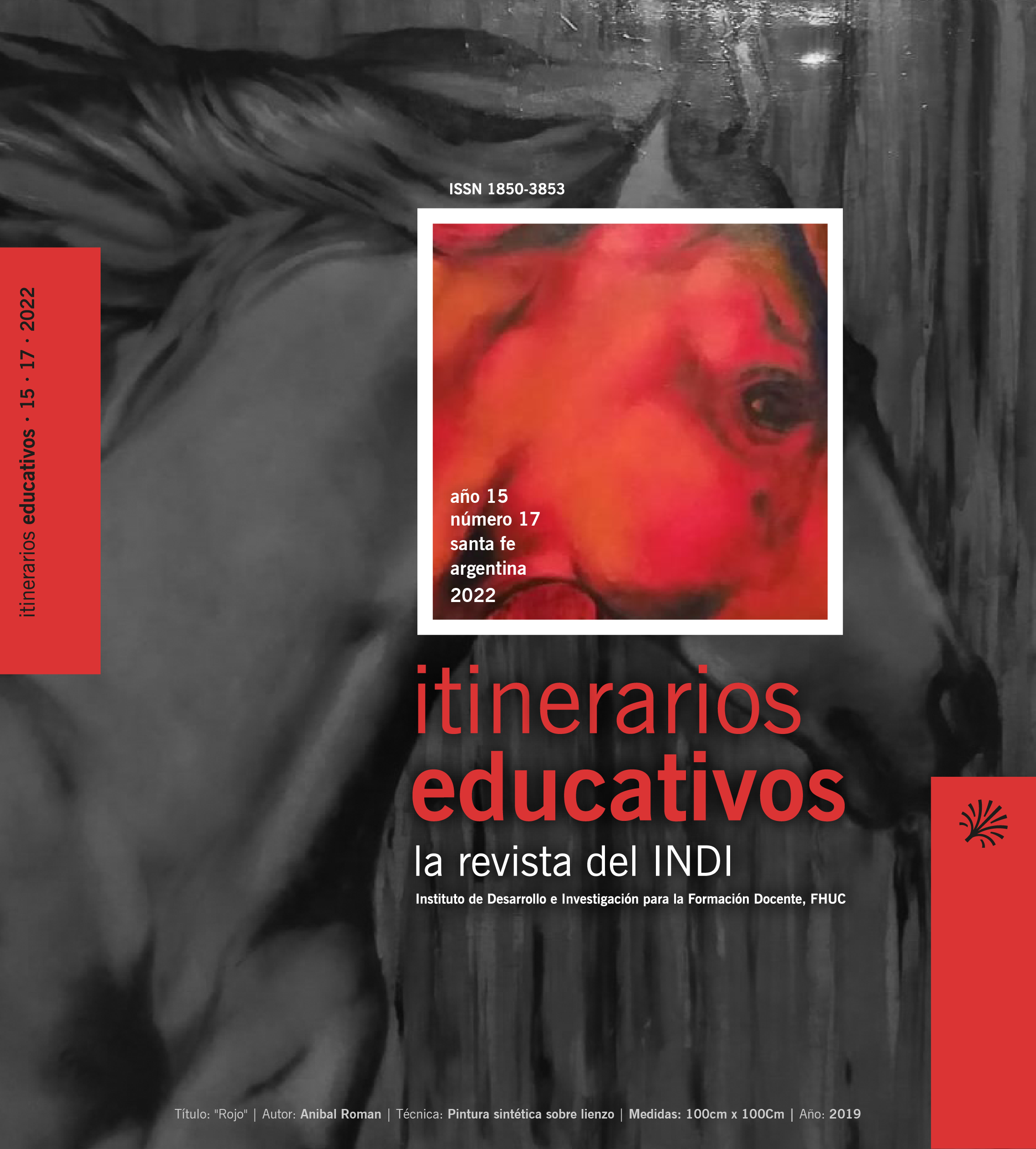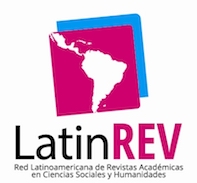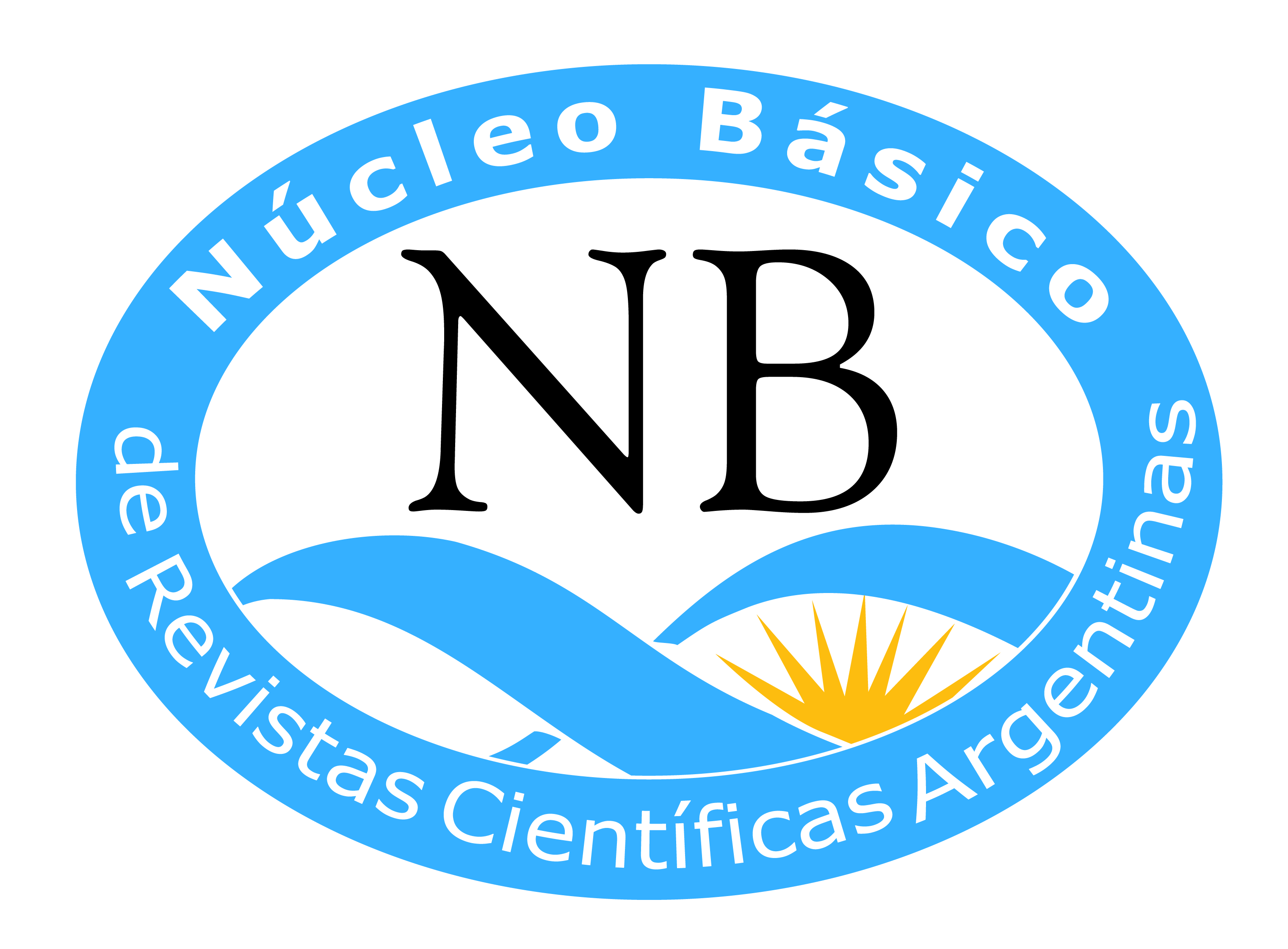Internships as an Integrating Space: being an intern of the Math Teaching Program at the National University of Rosario, Argentina, in 2020
DOI:
https://doi.org/10.14409/ie.2022.17.e0038Keywords:
teaching practice, initial training, Admission, pandemic context, mathematics educationAbstract
In this paper we share some experiences of a virtual internship in the Math Teaching Program of the National University of Rosario during the lockdown due to COVID–19 outbreak. The topics of interest focus on entering the work field, articulating contents at secondary level, mathematical representations, digital resources, exchange with students, evaluation and follow–up, and emotions and questions expressed by the intern in such a peculiar context. This work provides testimonies intended to contribute situated reflections on what it meant to live that formative instance without inhabiting educational buildings.
References
Alliaud, A. (2004). La experiencia escolar de maestros inexpertos. Biografías, trayectorias y práctica profesional. Revista Iberoamericana de Educación volumen 34, (01), 1–11. https://doi.org/10.35362/rie3412888
Anijovich, R. (2019). Orientaciones para la Formación Docente y el Trabajo en el aula: Retroalimentación Formativa. Santiago: SUMMA y la Caixa Foundation. Recuperado de: https://panorama.oei.org.ar/retroalimentacion-formativa/
Aranda Vega, E.M., Martín, A.M. y Corral, M.J. (2020). Diarios de clase: estrategia para desarrollar el pensamiento reflexivo de profesores. Revista Educación y Educadores, volumen 23, (02), 243–266. https://doi.org/10.5294/edu.2020.23.2.5.
Ball, D., Thames, M. y Phelps, G. (2008). Content Knowledge for Teaching. What Makes It Special? Journal of Teacher Education, volumen 59, (05), 389–407. https://doi.org/10.1177/0022487108324554
Barberá, E., Bautista, G., Espasa, A. y Guasch, T. (2006). Portfolio electrónico: desarrollo de competencias profesionales en la Red. Revista de Universidad y Sociedad del Conocimiento, volumen 3, (02), 55–66. http://dx.doi.org/10.7238/rusc.v3i2.287
Cantón, I. y Tardif, M. (Coords.) (2018). Identidad profesional docente. Madrid: Narcea.
Cecchi, N., Pérez, D.A. y Sanlorenti, P. (2013). Compromiso social universitario: De la universidad posible a la universidad necesaria. Ciudad Autónoma de Buenos Aires: CONADU. Recuperado de: http://beu.extension.unicen.edu.ar/xmlui/handle/123456789/170
Consejo Directivo FCEIA–UNR (2014). Resolución CD 086/2015. Planificación de la Actividad Curricular Residencia. Rosario: FCEIA–UNR.
Consejo Directivo FCEIA–UNR (2019). Resolución CD 564/2019: Lineamientos para el Trabajo en Terreno de la Práctica Profesional Docente de la carrera Profesorado en Matemática. Rosario: FCEIA–UNR.
Consejo Interuniversitario Nacional (2013). Resolución CIN 856/2013: Propuesta de Estándares para la Acreditación de los Profesorados Universitarios en Ciencias Exactas y Naturales. Ciudad Autónoma de Buenos Aires: CIN.
Consejo Superior UNR (2018). Resolución CS 027/2018: Plan de Estudios de la carrera Profesorado en Matemática. Rosario: UNR.
Dussel, I. (2020). La clase en pantuflas [video]. YouTube. Recuperado de: https://youtu.be/6xKvCtBC3Vs
Gómez, J.A., Vallejo, A.C. y Rodríguez, S. (2014). Avances en propuesta de formación del profesorado para la educación superior, desde el método de la narrativa. Revista de Educación, volumen 5, (07), 205–228. Recuperado de: https://fh.mdp.edu.ar/revistas/index.php/r_educ/article/view/989
Hernández, R., Fernández, C. y Baptista, P. (2014). Metodología de la investigación (6ta. Ed.). Ciudad de México: Mc Graw Hill.
Lipsman, M. (2014). El enriquecimiento de los procesos de evaluación mediados por las TIC en el contexto universitario. Revista Iberoamericana de Evaluación Educativa, volumen 7, (02), 215–222. Recuperado de: https://revistas.uam.es/riee/article/view/3127
Martín, M. (2014). Formación del profesorado en la era postmoderna: una perspectiva narrativa. Revista de Educación, volumen 5, (07), 75–92. Recuperado de: https://fh.mdp.edu.ar/revistas/index.php/r_educ/article/view/982
Martín, A.M., González, R. y Méndez, L. (2022). Los actores y etapas del Prácticum en contextos educativos a distancia. En Martín, A.M., Méndez, L. y González, R. (Coords.). El Prácticum en contextos de enseñanza no presenciales. Investigación desde la práctica (pp.11–30). Madrid: Narcea.
Ministerio de Educación de Santa Fe (2020). Orientaciones sobre el cursado y evaluación del Trayecto de la Práctica en los IFD santafesinos para el ciclo lectivo 2020. Santa Fe: Observatorio de Prácticas de Santa Fe. Recuperado de: https://campuseducativo.santafe.edu.ar/wp–content/uploads/observatorio–de–pr%C3%A1cticas.pdf
Ongallo, C. y Gallego, D. (2020). El «emofeedback»: la inteligencia emocional y el feedback en los procesos de acompañamiento. Revista de Ciencias de la Comunicación e Información, volumen 25, (02), 1–22. https://doi.org/10.35742/rcci.2020.25(2).1–22.
Rodríguez, M. (2020). Enseñanza de la matemática en cuarentena [video]. YouTube. Recuperado de: https://youtu.be/03tNUtaDfAg
Ruffinelli, A., Morales, A., Montoya, S., Fuenzalida, C., Rodríguez, C., López, P. y González, C. (2020). Tutorías de prácticas: representaciones acerca del rol del tutor y las estrategias pedagógicas. Revista Perspectiva Educacional, volumen 59, (01), 30–51. https://doi.org/10.4151/07189729–Vol.59–Iss.1–Art.1004
Sgreccia, N., Ciccioli, V. y Mengarelli., M.S. (2021). Devenir del trayecto de la práctica de los Profesorados universitarios en Matemática en entornos virtuales. Revista IRICE, (40), 49–77. Recuperado de: https://ojs.rosario–conicet.gov.ar/index.php/revistairice/article/view/1439
Published
How to Cite
Issue
Section
License
Those authors who have publications with this magazine, accept the following terms:
The authors will retain their copyright and guarantee the journal the right of first publication of their work,
which will be simultaneously subject to the Creative Commons Recognition License that allows third parties to share
the work whenever its author and first publication this magazine.
Authors may adopt other non-exclusive licensing agreements for the distribution of the published work (eg, deposit
it in an institutional telematic file or publish it in a monographic volume) whenever the initial publication in this
journal is indicated.
Authors are allowed and advised to disseminate their work through the Internet (eg, in institutional telematic files
or on their website) before and during the submission process, which can produce interesting exchanges and increase
citations of the published work. (See The effect of open access).
















